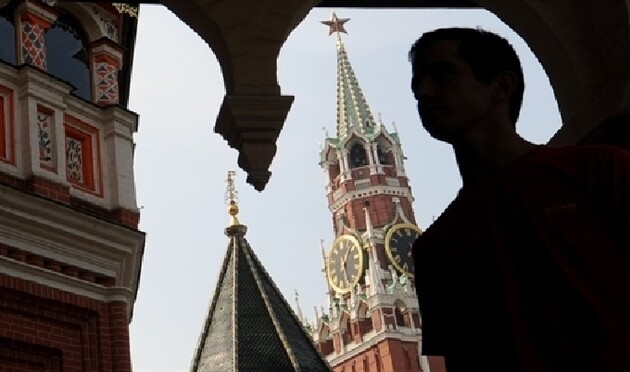The economic crisis, confrontation and surrounding pessimism can worsen an already critical situation.

Voluntary departure abroad, mobilization and combat losses will further intensify the demographic catastrophe in the Russian Federation, which began in the mid-1990s. The Russian National Institute of Statistics Rosstat will publish the final annual data only in February. But the researchers contacted by France Info have almost no doubts about the future upheavals, the consequences of the war against the neighboring country.
Read also: More than 200 “denazified” Russians: how the last day on the southern front passed
p>
The meaning of the two waves of going abroad was initially unknown: after the beginning of the invasion, then during the mobilization, from which many Russians wanted to escape. The borders of several states neighboring Russia (Kazakhstan, Armenia, Georgia, etc.) were crossed by thousands of citizens who wanted to leave the country.
Read also: Russians search for “otsupplenie” on Google and became less interested in the so-called . denazification
“Even in the most peaceful years, Russia underestimated the number of those who left the territory for a long period,” explains demographer Sergey Zakharov of the Institute for Advanced Studies (IEA) in Nantes. In particular, Russian emigrants do not always notify state services of their departure. Therefore, it is advisable to refer to the data of the receiving countries, but they do not always have well-established statistics.
The Ministry of Internal Affairs of Georgia reports the entry of 112,733 Russian citizens into the country in the period from January to September, without providing figures about final settlements. “We see a huge influx of Russians,” the head of the Central Bank of Armenia, Martin Galstyan, also said, referring to “educated people” and the possible “long-lasting effect” of their arrival.
Read also: Confrontation with Azerbaijan: Armenia criticized pro-Russian CSTO and refused aid
About 32,000 Russian migrants have been registered in Israel, adds Jean-Christophe Dumont of the Organization for Economic Cooperation and Development, which is a very significant increase compared to last year. In Western Europe, the balance of arrivals and departures hovers around 38,000, according to Frontex.
“Avoid the need to kill or be killed”
“Currently, estimates range from 500,000 departures without return to 1.5 million,” Serhiy Zakharov said. The gap is “too wide to reach a consensus.” Furthermore, there is no indication that these cases can be called permanent. “Some people who fled the country may not have intended to leave,” says the researcher, but only wanted to “avoid war and the need to kill Ukrainians or be killed.” Therefore, it is still too early to assess the weight of these departures in the medium term.
“Close the border” as a Soviet strategy
Alain Bloom, a demographer at the Ecole des Hautes Etudes en Sciences Sociales (EHESS), notes that “during major crises in the past, the Soviet strategy was to close the border to exits,” which was less true this year. “Some of these Russians, in addition, continue to work for their employers through remote work.” The whole question is whether they intend to return to Russia after the situation stabilizes.
A “heterogeneous” population left Russia, emphasizes Serhiy Zakharov, but most of them are “city dwellers who have the opportunity not to listen to propaganda from TV screens and get independent information on the Internet.” Brain drain was characteristic of Russia even before the war. After mass demonstrations in 2011, repression contributed to the acceleration of the outflow.
Read also: The Kremlin prepares Russians for a new wave of mobilization and scares with the offensive of the Armed Forces on the border regions – ISW
“Previously, Russian IT students created entire colonies in Cyprus or New Zealand,” explains Serhii Zakharov, “now new colonies are being formed in Kazakhstan, Armenia, Georgia, Montenegro, Turkey…” Some university teachers are also finding a way out, and “Moscow universities are already suffering a lot significant losses,” he says.
Read also: The EU will not accept Russian passports issued in the occupied territories of Ukraine and Georgia
Combat losses are unknown
Military the losses are still shrouded in mystery. Because of censorship, we also had to wait half a century “for a more or less reliable assessment of the losses of the USSR during the Second World War”, recalls Serhii Zakharov, who takes the minimum figure of 50 thousand dead as a working hypothesis.
Read also: Russian losses in Ukraine may exceed US losses in Vietnam tenfold – Newsweek
Related video
In the end, the mobilization absorbed 300,000 people, and according to some public organizations, more. According to a survey by the Heydar Institute, a third of industrial companies are currently experiencing a labor shortage. New waves of mobilization may further worsen the situation.



